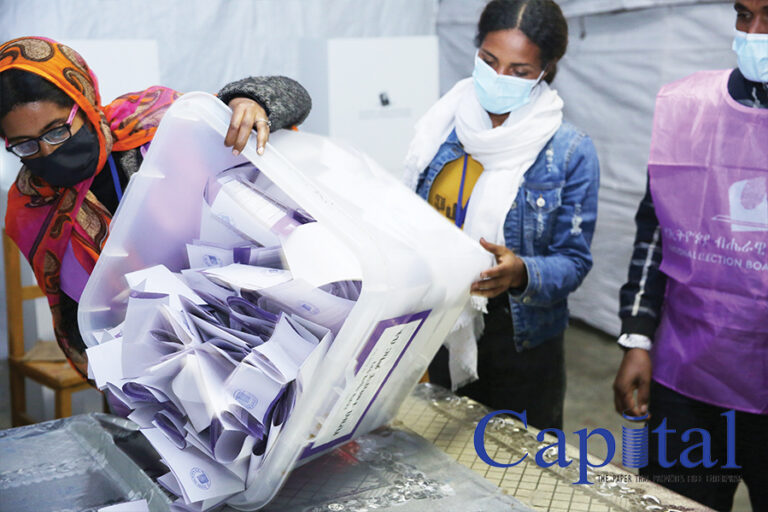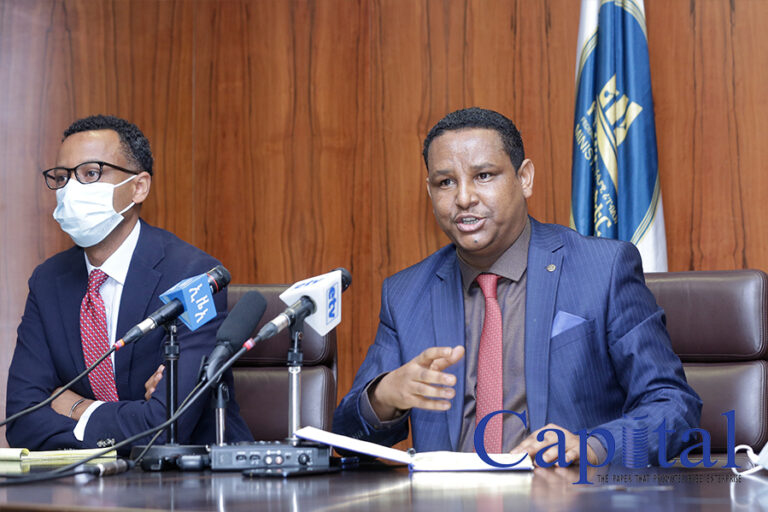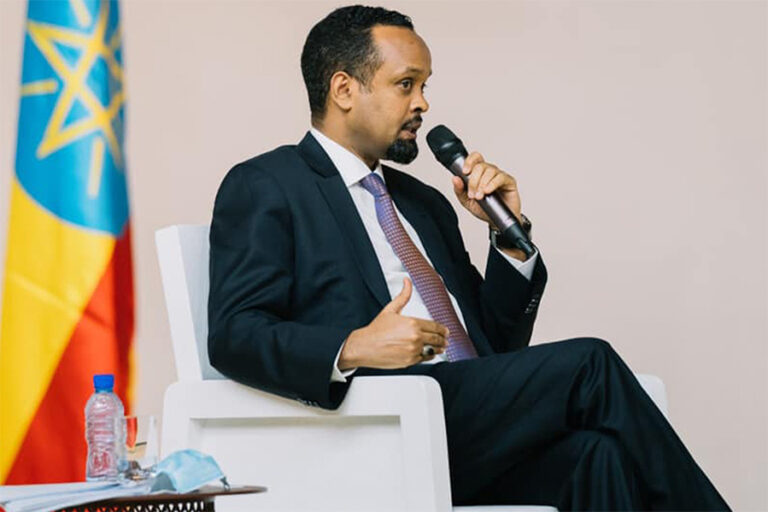The fifth African Climate Resilience Infrastructure Summit (ACRIS5), which was held virtually highlighted that integration of climate resilience in the design and implementation of key areas such as agribusiness, hydropower plants, transport corridors, urban sprawls and ecosystems such as protected areas, which are vulnerable to climate change, is critical if Africa is to recover and building forward better to attain sustainable development and shared prosperity.
Addressing the summit Jean-Paul Adam, the director of the Technology, Climate Change and Natural Resources Division at the Economic Commission for Africa (ECA) noted that increased and sustained investments in agriculture, energy, water systems, smart cities, infrastructure and resilient nature-based ecosystems are needed to propel Africa’s socio-economic growth and fast-track poverty alleviation. “Investments in these sectors are critical for Africa trade agenda through the African Continental Free Trade Area, for regional integration and for a smart and climate neutral industrialisation agenda.” Adam said.
Embedding and financing climate resilience underpins Africa’s recovery
Unfolding Ethiopia’s ballot
The National Electoral Board of Ethiopia (NEBE) announced that it will try to release the final result in 10 days. However, if further delays are incurred, NEBE has affirmed that it could take up to 20 days. The preliminary results were supposed to be released on Saturday June 26, but said that results of only 221 constituencies from the total of 440 constituencies where election was held had arrived to the board.
The most delayed results are from Amhara Region, according to NEBE where only 40 constituencies released results from a total of 125 constituencies.
In related news, the National Electoral Board of Ethiopia said that parties can take their complaints to court of law if they feel that the board has not responded to their issues properly.
“Ethiopia had its most progressive and credible election with the level of participation being wonderful,” stated Birtukan Mideksa, Chairwoman of the board.
“The board is preparing to solve all the challenges occurred in the first round of the sixth general elections,” explained Soliyana Shimels, communication advisor of the board.
On Monday June 21st, 2021 the first schedule of the general elections saw millions of Ethiopians across the nation turning up early to participate in the country’s sixth general.
Ethio-Telecom’s valuation hits 80bln birr ceiling
The Investment Teaser ‘Project Nigat’ – Partial Privatization of Ethio Telecom of Deloitte Consulting Limited, hired by the Ministry of Finance (MoF) to consult on the partial privatization of Ethio Telecom, shows initial asset valuation of the most profitable public enterprise to be about 80 billion birr.
The second telecom license bid document may also be issued with some crucial policy revision of the government with the consideration of independent infrastructure investment and mobile money.
The investment teaser released in association with MoF’s announcement for expression of interest (EOI) for the 40 percent share acquisition at Ethio Telecom, the century and quarter telecom monopoly, stated that the enterprise’s total equity and liabilities is over 79.8 billion birr.
“Business valuation that includes the turnover of the company, services and their value and the total generation in the coming years is critical rather than total asset to measure the value of a company,” one of the sector actor closely following the partial privatization process told Capital.
Of the stated amount, the current assets are 38.9 billion birr and the remainder 40.9 billion birr is noncurrent asset.
The enterprise equity that was stated on the investment teaser’s balance sheet was 25.29 billion birr, while the noncurrent liabilities and current liabilities are 27.2 billion birr and 27.3 billion birr respectively.
It explained that from the balance sheet the mobile network equipment is the largest non-current asset class constituting 42 percent of property, plant and equipment as at 31 December 2020.
Ethio Telecom has over 7,400 tower sites (700 plus sites in Addis Ababa); of which 96 percent are greenfield towers and remaining are rooftop towers with the length ranging from 2 metres to 102 metres and an average height of 36 metres, while it has 7,777 real estate properties. It has over 21,000 km of fibre network spread across Ethiopia and about 85 percent is buried.
The bulk of the non-current liabilities related to promissory notes, which pertained to vendor financing agreements that Ethio Telecom has with its suppliers for the telecom expansion project (TEP) and next generation projects.
The TEP is mainly involved on improving network service quality, increasing coverage and capacity on mobile service through purchase of high-speed fibre optic capacity and increased networks maintenance. It added that Ethio Telecom was in a positive net asset position throughout the analysis period.
The investment teaser indicated that as of April 2021, Ethiopia’s telecom sector was largely characterized by low tele-density and mobile penetration (53.5 percent and more than 50 percent, respectively) compared to 90 and plus percent in major African economies, and low mobile broadband penetration rate (3G and 4G subscribers accounted for 46 percent of total mobile subscriptions, and 4G penetration rate stands at a mere 2.6 percent).
“The low tele-density, mobile and internet penetration offer a huge untapped potential for the telecom investors,” it explained.
It is to be recalled that Ethio Telecom hired KPMG East Africa, asset valuation of the enterprise, to conduct its business valuation.
Experts in telecom sector explained that matching of the two consulting firms’ valuation may indicate the common value.
The telecom giant with 127 years of experience which has registered over 28.4 billion birr revenue in the first half of the current business year is the most profitable public enterprise.
Early last week MoF issued EOI that interested stake buyers on Ethio Telecom to submit its proposal up until 14 July 2021.
The government has decided to sale 40 percent of Ethio Telecom state to interested international buyer on the way to privatization besides opening up the sector for two more players.
The consortium of Vodafone Group, has already secured the license on the initial liberalization bid, while the second bid is expected to be retendered.
Brook Taye, Senior Advisor at MoF, said that the government will undertake some policy revision for the retendering of the second license. The policy revision is expected to open up some of the sectors that was closed or left for Ethio Telecom in the previous bid.
Brook preferred to state the change as government policy revision than taking areas in detail but hinted that the mobile money policy is one of the changes.
However, experts confirmed that the government will also allow to opening up the sector for infrastructure developers to invest in the country.
On the first bidding process on the consultations potential companies have been insisted the government to allow infrastructure developer to invest in the country, while the initial stage the government had targeted to open the market for such companies but later it decided to suspend the plan for unspecific period.
Closing the mobile money service and companies on infrastructure investment was stated as one of the factor since the government was unable to get the offer as per its estimation of USD one billion for a single license.
The government was paid USD 850 million by Vodafone’s consortium for the first license.
MoF restructures debt to narrow risk
Under the midterm strategy the government targets to back the debt risk to moderate level in the coming three budget years time.
In his budget speech at parliament, Ahmed Shide, Minister of Finance, said that the debt restructuring work is undertaken to improve the distress to moderate level.
The country has been in high debt risk as of about five years ago in related with taking massive commercial loans for public projects that contributes to suffer the economy for their delays.
Ahmed said that as per the plan at the end of the 2023/24 budget year the debt stress shall shrink to moderate level from the current high debt risk.
The external debt-GDP ratio is about 27.3 percent, while as of March 31, 2021 the total outstanding debt including domestic one was 50 percent of the GDP or USD 53 billion.
It is to be recalled that the government suspended any public enterprises to access non concessional loans for about four years.
Under mitigation approach, Ahmed said that it will continue until the country is enabled to show massive changes on the export earnings and create a capacity to repay for debts.
He said that the government is using different policy instruments to solve structural problems on the export sector to improve the foreign currency earnings by increasing the volume and diversification in different sectors.
Debt payment restructuring with partners like China has also stated as other alternative to normalize the country debt stress.
On his speech the Minister has also indicated that the government has targeted to amass 334 billion birr from tax that would be the major share for the 2021/22 budget. For the coming budget year that will start on July 8, 2021 the government has proposed 561.7 billion birr.
The coming year projected tax collection has a 22.9 percent increment compared with the 2020/21 targeted revenue. In the 2020/21 budget year the government has set to earn 271.7 billion birr from tax that is expected to be achieved.
In the coming budget year the government has targeted to impose different restructures on the tax regime. For instance the value added tax (vat) reform: which delayed because of the global pandemic will be applied in the year. In this regard some commodities and services will be included on the vat regime. Similarly customs tariff revision will be put emplace to improve the revenue collection.
However the tax collection is expected to show a 23 percent increment compared with the preceding year its GDP share will be dropped to 7.1 percent.
Including tax the country revenue for the coming budget year will be 436 billion birr, while the budget gap from 561.7 billion birr is 125.7 billion birr that is 2.7 percent of the GDP.
According to Ahmed the budget deficit will be covered by domestic loan, 69 billion birr and foreign loan of 57 billion birr.
Of the total budget, which has an 18 percent increment compared with the 2020/21 budget, the budget support for regions took the lion share by 204 billion birr that was followed by capital and recurrent budgets of 183.5 billion birr and 162.2 billion birr respectively.
“From the total 183.5 billion birr capital budget 132.8 billion birr is covered by the government coffer of which 1.2 billion birr is allocated for rehabilitation work in Tigray region that will also supported by additional finance from partners,” Ahmed explained.
As usual the road sector takes the lion portion of the central government budget that is 67.45 billion birr or 19.5 percent from the capital and recurrent budgets.
Education and debt service followed by 19.1 and 13 percentages respectively or by 66 billion birr and 45.1 billion birr.
Of the total 45.1 billion birr allocation for debt service 31.8 billion birr that includes 12.8 billion birr interest and commission is for external debt service.
The defense budget has become a 4th priority with the share of 6.36 percent or 22 billion birr. For the 2020/21 budget year the defense sector has been the sixth priorities after water and health sectors with 5.62 percent share of the total budget. For this coming year it has slight increment in portion of 22 billion birr that was 16.5 billion birr for the ending year, and share from the total.
For the 2021/22 budget year the health and agriculture seat as 5th and 6th major sectors that will get the highest budget.







